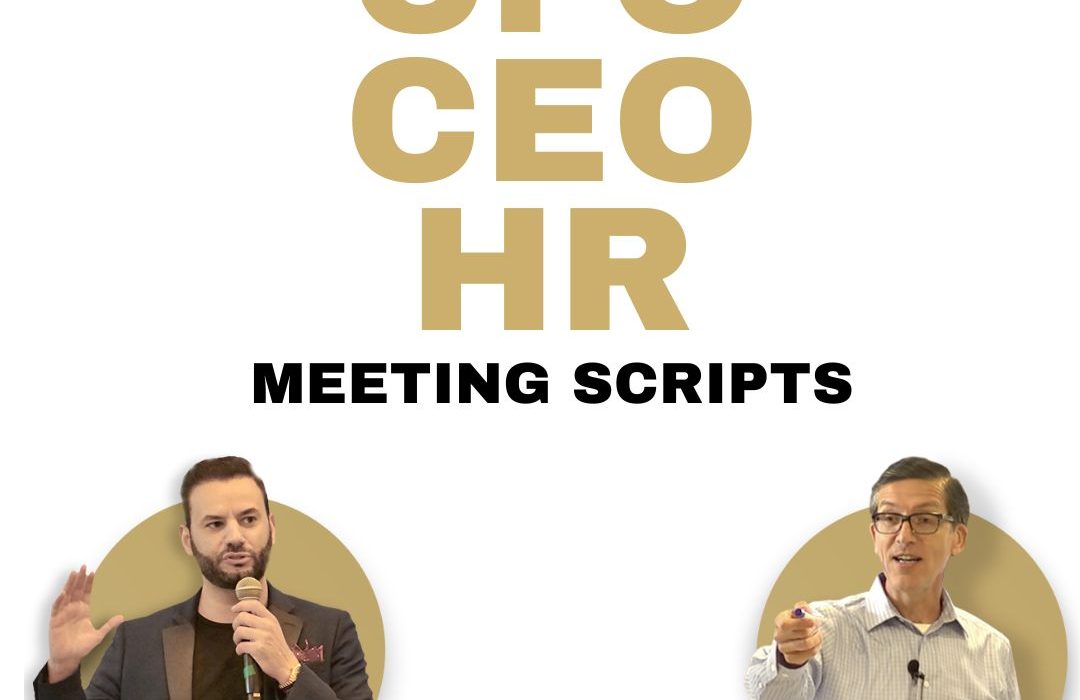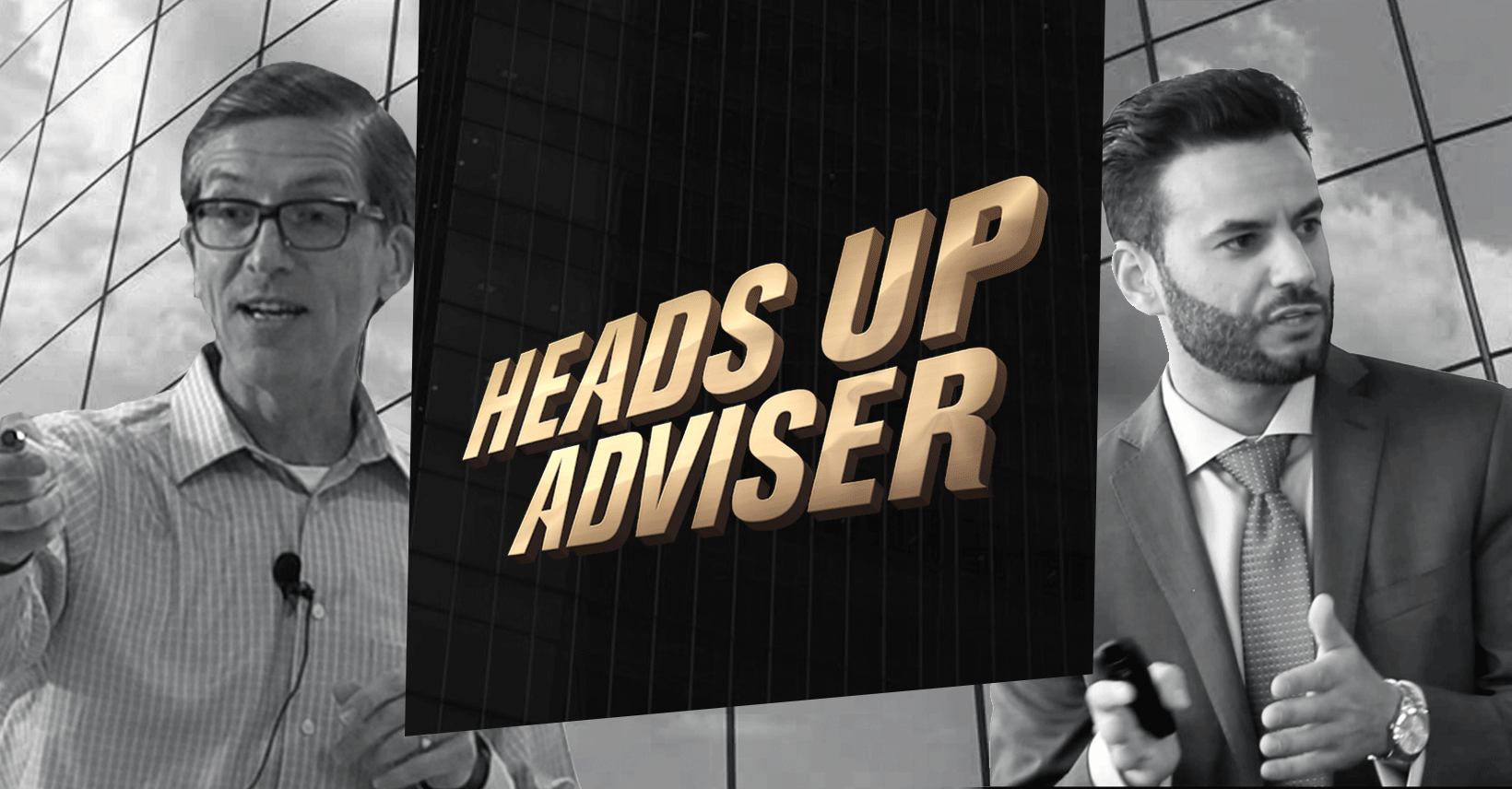CEO/CFO/HR Meeting Scripts To Change Your Sales Game
CEO/CFO/HR Meeting Scripts To Change Your Sales Game
"A New Strategy For Selling Self-Funding To Employers In 2023."
Gain access to the new sales deck that helps overcome objections, grab attention, and convert new business from Fully Insured to Self-Funded with a team of experts right by your side. CLICK HERE TO ACCESS THE WEBINAR
Arrange a 30-Minute Strategic Session with John Sbrocco.
Discover The Virtue Health Consortium - A New Way To Self-Funding.
CLICK HERE
SHOW SPONSOR
Download Virtue Health Case Study - 400-Employee Healthcare Company Expanding Across the US
Implementing a partially Self-Funding plan with the Virtue Health Consortium resulted in a 28% premium reduction or $1,954,921.60 in savings. CLICK HERE TO DOWNLOAD THE FULL VERSION
__________________________
The insurance broker business is challenging. It's time-consuming and filled with rejection. And if you reach the right lead, you'll have very few precious moments to explain the value of your option to them properly.
In this episode, John Sbrocco and Craig Lack compiled 3 powerful scripts for your upcoming meetings with CEOs, CFOs and HRs.
___________________
You can boil down all human beings to 6 basic needs. People need:
- Variety
- Certainty
- Growth
- Significance
- Make connections and experience love
- Make a contribution.
When you think about the different decision-makers you like to talk to, you just think in terms of those 6 human needs and match up what value proposition you offer, the problems you solve, and align those 6 human needs you know for a fact your buyers all have.
Let's start with variety. Some of your potential buyers love variety. Maybe they're younger, maybe they're part of a start-up, or maybe they are just ready for a dramatic change, looking for help anywhere they can get it - so you fit well with that.
In contrast, you will find people that like certainty. And does healthcare offer much certainty? No. Especially if conventionally sold. Especially if you're going into 95 out of 100 prospect groups knowing that they have no certainty at all related to their hospital bill, their surgical centre bill, their pharmacy bill, or their doctor bills. Thus, you know that you can take the angle of:
- Does that feeling of uncertainty make you comfortable? How do you address it? What do you do every year? What was the last time you tried to make a change to try and get more certainty
... and you just have a conversation that is so easy to follow.
Now, what about growth?
In my 36 years of experience talking with Human Resources versus the C-Suite, HRs are just not interested so much in growth.
CFOs, on the other hand, are interested in growth as they report to the CEO. And what do CEOs do? Well, most of them probably own shares of the company. Thus they want more growth in order to have more profits so that their net worth goes up if and when they sell the company. CFOs are always pressured for growth.
- What are you doing to grow the top line, CFO?
- What are you doing to grow the bottom line?
- In a marketplace where we have 7% inflation - and that's the published one, we all kind of know that it's more than that - what do you think the healthcare train inflation rates are going to do to you next year? How are you going to overcome that?
- Can you jack up your prices? What about other supply chain providers? How are you dealing with this margin compression?
And then you have a very simple conversation about growth.
What about significance? Here's when it gets interesting. I find that HR people, unintentionally, are interested in significance. The significance that they feel when their employees show them love. When the employees have no noise. So, sometimes in the buying process, human resource managers are looking for: "What's the impact to me personally, if this doesn't work?"
In contrast, the CFOs are much easier to pitch about significance. You've got 100k / 300k / 500k in savings... Here's the right questions to ask:
- What kind of significance are you going to get from the CEO when you show them that you've just dropped a quarter of million dollars of new EBITDA to the bottom line - very simply, with very little friction and no employee noise?
- If you get more significance from the CEO or the President of the company, do you suppose maybe we could negotiate a pay raise for you?
At last, people also want to make a contribution. Clearly, HR people love to make a contribution. I have talked to HR people who told me that their job is to protect the employees from the company. In contrast, the CFOs have told me that their job is to protect the company from CEO. So you have these dispute agendas, and you have to try and align your value proposition with what's going on in their world - personally and professionally.
_____________________
TUNE INTO a masterclass from experts with over 50 years of combined experience in the health insurance business. With these templates, you can start your own scripts, improve your existing ones, and refresh your techniques.
_________
Key points of discussion:
✔️ Your Buyer Persona and their 6 human needs
✔️ How to get CEOs and CFOs actively involved in health insurance issues
✔️ Dealing with HRs and their resistance to change
More...
For a weekly dose of inspiration for healthcare brokers by healthcare brokers, subscribe to our blog.

Stay connected and inspired








